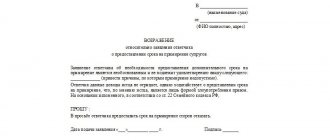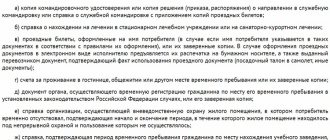The magistrate's court is considered a court of general jurisdiction. Its activities, list of cases, information about their composition, competencies and work regulations are fixed by the Constitution of the Russian Federation, Federal Law and regional laws. In fact, the magistrate’s court is the first stage of the system and deals with the analysis of circumstances of general jurisdiction using a simplified procedure. The claim will be considered within a month, as in the first type of instance. Here only situations from private individuals who independently filed a claim can be considered.
To which court is the claim filed?
In this article we will consider in detail the jurisdiction of civil cases .
This information will help you figure out on your own how to correctly determine the jurisdiction of a claim , find out what types of jurisdiction are distinguished in civil proceedings, when jurisdiction can be changed by agreement of the parties, what cases are considered by the magistrate’s court, what cases are considered by the district court , what jurisdiction means choice of the plaintiff, and other useful information.
Lawyer on procedural issues in St. Petersburg. Tel.+7 (812) 989-47-47 Telephone consultation
To file a claim in court, first of all, it is necessary to determine its generic (magisterial, district, city/regional, Supreme Courts of the Russian Federation) and territorial (local) jurisdiction (distribution of consideration of cases at first instance between homogeneous courts, i.e. in what territory the case will be considered)
Attention: Changes made to the Civil Procedural Legislation of the Russian Federation by Federal Law No. 451-FZ of November 28, 2018 also affected the jurisdiction of magistrates and district courts. Thus, from October 1, 2019, cases on determining the procedure for the use of movable and immovable property, as well as family disputes previously assigned to the jurisdiction of justices of the peace, including cases arising from alimony obligations, will be considered by district courts. Also, an innovation in the jurisdiction of magistrates was cases on the protection of consumer rights with a claim price of up to one hundred thousand rubles.
Legislative regulation of the issue
Judicial practice allows us to give a clear definition of what a magistrate’s court is and what it does. Particular attention is paid to the procedure for regulating legal relations when considering a particular case. In particular, we are talking about the provisions of specific legislative acts:
- Federal Law - 18 “On Justices of the Peace”;
- Constitution of the Russian Federation;
- Federal Law “On the Judicial System of the Russian Federation”;
- legislative acts adopted at the regional and federal levels.
According to the law, the magistrate himself, as well as his relatives, are guaranteed complete immunity. To answer what justices of the peace do, you need to have an idea of the principle of the official’s work. By law, each judge serves one area, which, in turn, is determined by certain territories. In fact, at least 15-23 thousand citizens should live in one area. The number of Russians may be smaller, but provided that the territory is vast enough.
Jurisdiction of district courts
The law includes under the jurisdiction of district courts all disputes that are not within the jurisdiction of justices of the peace, military and higher courts, including:
- All family disputes, with the exception of cases of divorce, not burdened by a dispute about children, and cases of division of property of spouses with a claim value of up to fifty thousand rubles (from 10/01/2019)
- Housing disputes, including cases on determining the procedure for using residential property (from 10/01/2019)
- Property disputes for which the cost of the claim exceeds fifty thousand rubles
- Property disputes regarding the protection of consumer rights with a claim value exceeding one hundred thousand rubles (from 10/01/2019)
- Disputes of a non-property nature: compensation for damage to health, moral damage, etc.
- Inheritance disputes
- Labor disputes
- Disputes over rights to real estate
- Intellectual Property Disputes
- Cases considered in special proceedings: on the establishment of legally significant facts, recognition of a citizen as incompetent, restriction of legal capacity, recognition as missing, declaring dead and others listed in Art. 262 Code of Civil Procedure of the Russian Federation.
Cases within the jurisdiction of the supreme courts of republics, regional, regional, city courts, as well as the Supreme Court of the Russian Federation are defined in Art. 26 of the Code of Civil Procedure of the Russian Federation, Chapter 45 of the Code of Civil Procedure of the Russian Federation, and Art. 2 of the Federal Constitutional Law of 02/05/2014 No. 3-FKZ “On the Supreme Court of the Russian Federation”.
Administrative matters.
Cases considered by magistrates in the first instance may concern administrative violations. Officials have received such powers since 2021.
A peculiarity of the consideration of administrative cases is that one of the parties is usually local government bodies.
A justice of the peace is approached for justice when cases of hooliganism or fraud are revealed.
The official may consider applications for violating traffic rules or appearing in a public place while intoxicated.
The magistrate has the right to determine punishment for almost all offenses provided for in the Code of Administrative Offences. Legal proceedings are carried out in the manner prescribed by administrative law.
Territorial jurisdiction
The law establishes the following rules of territorial jurisdiction:
- General jurisdiction (Article 28 of the Code of Civil Procedure of the Russian Federation) - when the claim is filed in court at the place of residence of the defendant
- Alternative jurisdiction (Article 29 of the Code of Civil Procedure of the Russian Federation) - when a claim can be filed in court both at the place of residence of the defendant and at the place of residence of the plaintiff
- Exclusive jurisdiction (Article 30 of the Code of Civil Procedure of the Russian Federation) - when the law establishes the exact jurisdiction of the case. Remember that generic and exclusive jurisdiction are strictly defined by law and are not subject to change by agreement of the parties
- Contractual jurisdiction (Article 32 of the Code of Civil Procedure of the Russian Federation) - when the parties, by agreement among themselves, can change the territorial jurisdiction of the dispute, that is, the contract specifies the specific court to which the dispute will be heard. However, the parties can only change the general and alternative jurisdiction
- Jurisdiction for connection of cases (Article 31 of the Code of Civil Procedure of the Russian Federation) - establishes that a claim against several defendants can be filed at the place of residence of any of them, and a counterclaim is filed with the same judge who is considering the main claim
Knowing these rules, you will be able to correctly determine the court to file your claim. This is one of the most important points when going to court, since failure to comply with the rules of jurisdiction entails the return of the claim by the court . And this will significantly delay the process of restoring your violated rights, because the claim will have to be filed again in another court.
Additionally, filing a claim incorrectly may run the risk of missing the statute of limitations . For example, if a statement of claim is filed in the last days of the limitation period and the claim is reasonably returned by the court due to a violation of the rules of jurisdiction, and if by the time the claim is filed again in another court, the limitation period has expired, then it will be extremely difficult to restore it, and in the absence of other valid reasons, it is practically impossible. Of course, the statute of limitations can be applied by the court only at the request of the defendant.
Remember - the mere fact that you have already filed a claim within the limitation period, despite the fact that the claim was returned precisely in connection with a clear violation of the rules of jurisdiction, will not in the future be a basis for reinstating this period. Therefore, this issue must be approached responsibly.
If there are still difficulties in determining the jurisdiction of the case, or not everything is clear, contact us.
Legal assistance in procedural matters. Tel.+7 (812) 989-47-47 Telephone consultation
Procedure for an employee to take before going to court
Before going to court, an employee must comply with the rules of the claim procedure for pre-trial resolution of labor disputes. Conflict resolution before trial includes a number of activities:
- Negotiation . At the declarative stage, the employee can try to negotiate with his immediate supervisor and try to find a compromise. This tactic only works if there are minor disagreements with the employer, otherwise it can lead to an escalation of the conflict. The Labor Code of the Russian Federation does not directly indicate that an employee is required to conduct preliminary negotiations before applying to the Labor Dispute Commission (hereinafter referred to as the Labor Dispute Commission) (see Article 387 of the Labor Code of the Russian Federation).
- Contacting the CTS (if negotiations with the employer did not produce a positive result). An employee has the right to appeal to this authority within 3 months from the moment of discovery of a violation of his legal rights under the Labor Code of the Russian Federation. Such a date may be the day of non-payment of due wages, the date of an unlawful disciplinary sanction, etc.
If at the time of the violation the employee was on vacation, a business trip or on sick leave, then the deadline for filing the application must be restored. The commission considers applications within 10 days on the merits of the dispute.
If an employee or legal representative is absent from the CCC meeting, it will be postponed to another date. If you fail to appear again without a valid reason, the matter will be removed from consideration. In this case, the employee has the right to re-apply to the CTS before the expiration of the already valid 3-month period.
Upon inspection, the commission makes a decision, which must be executed within three days from the date of its adoption. In case of an unsatisfactory result, the employer or employee has the right to file a claim in court within 10 days from the date all parties to the conflict receive a copy of the CCC decision.
If jurisdiction changes during the process
During the consideration of the case, a situation may arise when the jurisdiction of the case changes, for example, when the defendant changes his place of residence. But this does not mean that the case will automatically be transferred to another court.
The law establishes that if the court initially accepted the claim correctly, then despite the change in jurisdiction after the start of the hearing, the case cannot be transferred to another court.
There are only four exceptions when, after accepting a claim by one court, the case can still be transferred to another court (Article 33 of the Code of Civil Procedure of the Russian Federation) :
- If both parties during the proceedings file a motion to send the case to the court at the location of the majority of the evidence .
- If the claim was filed at the last known place of residence of the defendant or at the location of his property due to the fact that at the time of filing the claim it was impossible to establish his place of residence , and the defendant who appeared will file a petition to send the case to his residence.
- If the claim was initially accepted by the court in violation of the rules of jurisdiction .
- If, after the challenges of one or more judges, or for other reasons, replacing judges or considering a case in a given court becomes impossible. In this case, the case is transferred to a higher court based on jurisdiction (from 10/01/2019)
In practice, you may encounter a number of difficulties when determining the jurisdiction of a claim, including the unfounded return of a statement of claim . In this case, the court ruling must be appealed to a higher court.
Our lawyers will help at all stages of going to court , competently, in accordance with the requirements of procedural legislation, they will formulate the claim material and submit it to the necessary court, appeal the illegal return of the claim, and, if necessary, represent your interests in court.
Competencies of a magistrate judge
The activities of a justice of the peace are regulated by Law No. 188-FZ of December 17, 1998, federal laws and local acts of the constituent entities of the Russian Federation.
The official considers single-handedly simple disputes and conflicts between citizens. Justices of the peace are vested with the powers of government representatives. Their responsibilities include control:
- over the validity of decisions of officials;
- for the execution of sentences;
- over the administration of justice.
Magistrates can hear criminal cases if the maximum sentence for the crime under the law does not exceed 3 years. The official accepts claims for administrative violations.
Jurisdiction is the determination of courts of general jurisdiction to accept and consider civil claims in the first instance. The magistrate is the initial link in the judicial system. It deals with simple cases involving disputes between citizens or legal entities.
On the jurisdiction of magistrates
First of all, it is worth noting that this is the name of a unique legal mechanism. It allows you to identify a suitable judge with special competence to consider a particular dispute. It is important to note that a magistrate is a person vested with the rights of a court of first instance.
Speaking about territorial jurisdiction, it is worth noting that it represents a unique institution that has the ability to fully function. However, only after the correct application of the rules on patrimonial jurisdiction. That is why, in practice, cases are considered in aggregate to determine the specific specifics.
Filing a claim under exclusive jurisdiction
In cases involving exclusive jurisdiction, claims can only be filed in a specific court, namely:
- if claims are related to rights to real estate or to the release of property from seizure, then they are filed in court at the place where the relevant property is located;
- in the event of claims being brought by the testator's creditors when the heirs have not yet accepted the inheritance, they are subject to consideration by the court at the place where the inheritance was opened;
- claims under transportation contracts brought against the carrier are filed in court at the carrier’s address;
- if a claim is filed aimed at protecting the rights and interests of a group of persons, then it must be considered by the court at the address of the defendant.
Competence in labor disputes
It is worth noting that magistrates have jurisdiction over disputes in the area of application of labor legislation. Observations show that the most common subject of proceedings in cases considered by this authority are those relating to reinstatement and illegal dismissal.
It is known that disputes in the field of labor law can be both individual and collective. As for the competence of justices of the peace, this circle includes only individual judges, who, as a rule, relate to:
- transfers to another job or changes in working conditions;
- making entries in the work book;
- making changes to the employment contract or challenging some of its clauses;
- payment for forced absences;
- the employer commits unlawful actions;
- employee's financial liability;
- wages, etc.
Divorce through the Magistrates' Court
It is not always possible for spouses to resolve issues with divorce amicably; it happens that only one spouse feels the need to end the marriage; sometimes contradictions arise due to custody of minor children or in the area of division of property. In any of the above cases, you will have to get a divorce not through the registry office, but in court.
In addition to district courts, magistrate judges can also hear cases of termination of family relationships. Many people know that hearing cases in a magistrate’s court is faster and easier. But not all couples can file a claim with this authority. You will learn about the cases in which divorce proceedings fall under the jurisdiction of the magistrate, as well as the main subtleties of the consideration of the case, by reading our material.
Concept
Some people are interested in who the worldlings are and what they do. You should know that they were known in all periods. In ancient times, they were elected by people to resolve minor disputes.
Such courts appeared at the beginning of the fourteenth century. Their location was determined in England. They appeared in our country in 1864.
The justice of the peace is an official. Usually a person is appointed to this position by government authorities. Such a judge independently reviews cases.
Nowadays there are no magistrates, there are only justices of the peace. They stand at the lowest level of the general judicial system.
The work of such judges is regulated by the Constitution. It contains: the rights, duties and general procedure for appointments to the position of judges.
People in such positions make decisions based on the law of the Russian Federation. Such institutions are financed from the federal budget.
What is a reasoned court decision?
A court decision that is made after studying all the features of the case. This decision must be issued within five days of the final hearing. At the same time, the court must certainly announce the operative part of the decision at the court hearing at which the consideration of the case ends
Please note that the operative part must be signed by all judges. After which, this part must be included in the case
The consideration of a case is based on the active participation of all parties, as well as on the evidence and witnesses provided by the parties to the case.
Thus, the court has the opportunity to study in great detail all the evidence and features of the case, which makes it possible to comply with all the principles of legality, and also becomes the basis for making a correct and legal decision.
The principle of considering a case is based on a clearly developed scheme. If a reasoned decision was made on Friday, and it is not possible to draw it up on the same day, then the decision itself must be announced, and within five days the reasoned decision will be drawn up.
That is, it is not allowed for judges to go to the deliberation room on Friday after the court hearing, but only announce the results on Monday. The principle will be this: a meeting takes place on Friday, after which the decision is read out, but a reasoned decision will be issued after. But all participants in the process will already know the essence of the decision made and announced.
Criminal proceedings
Justices of the peace consider criminal cases if the maximum punishment under the article is no more than 3 years (Article 31 of the Code of Criminal Procedure of the Russian Federation).
Among them are the following crimes:
- deliberately causing minor harm to health;
- slander;
- beatings;
- causing serious harm through negligence;
- death threats, etc.
Exceptions are specified in Art. 31 Code of Criminal Procedure of the Russian Federation. The magistrate does not consider cases of murder committed in a state of passion, carrying out business activities without registration and license, violation of equal rights and freedoms of a citizen, etc.
These crimes are tried in the district court, despite the fact that the maximum punishment for them is no more than 3 years in prison, correctional labor or a fine.
Appeal to the magistrate. Sample. [18.51 KB]
Commentary on Article 23 of the Code of Civil Procedure of the Russian Federation
1. In contrast to the institution of jurisdiction, which is necessary to determine the competent jurisdictional body to resolve a particular legal matter, the institution of jurisdiction distinguishes cases within the jurisdiction of courts of general jurisdiction between various parts of a unified system of courts of general jurisdiction. According to the rules of jurisdiction, among all courts of general jurisdiction of the Russian Federation, a specific court is determined that has the competence to resolve cases as a court of first instance. Civil proceedings are characterized by two types of jurisdiction: generic and territorial.
In Art. Art. 23 - 27 of the Code of Civil Procedure formulate the rules of generic jurisdiction for cases within the jurisdiction of courts of general jurisdiction. According to the rules of generic jurisdiction, a court of general jurisdiction of the appropriate level is determined, which has the right to consider a particular case. Since the criterion of generic jurisdiction is the type (category) of the case, it received the name generic jurisdiction. It is generic jurisdiction that makes it possible to differentiate cases within the jurisdiction of courts of general jurisdiction depending on their type between courts of different levels.
On the basis of the Federal Law of December 17, 1998 N 188-FZ “On Justices of the Peace in the Russian Federation” <1> the institute of Justices of the Peace was introduced into the judicial system of the Russian Federation. In accordance with Art. 1 of the said Law, justices of the peace are judges of general jurisdiction of the constituent entities of the Russian Federation and are part of the unified judicial system of the Russian Federation. Magistrates administer justice in the name of the Russian Federation. They are appointed (elected) to a position by the legislative (representative) body of state power of a constituent entity of the Russian Federation or elected to a position by the population of the corresponding judicial district in the manner established by the law of a constituent entity of the Russian Federation.
——————————— <1> NW RF. 1998. N 51. Art. 6270.
Justices of the peace operate within the boundaries of judicial districts. The total number of justices of the peace and the number of judicial districts of a constituent entity of the Russian Federation are determined by federal law (see Federal Law of December 29, 1999 N 218-FZ “On the total number of justices of the peace and the number of judicial districts in the constituent entities of the Russian Federation” <1>). Judicial districts are created based on the population size in one district from 15 to 30 thousand people. In administrative-territorial entities with a population of less than 15 thousand people, one judicial district of the magistrate is created.
——————————— <1> NW RF. 2000. N 1. Art. 1.
In accordance with Art. 12 of the Federal Law “On Justices of the Peace in the Russian Federation”, before appointment (election) to the position of justices of the peace, cases within the competence of justices of the peace are considered by district courts. Thus, if justices of the peace were not appointed (elected) in any subject of the Russian Federation, then claims in cases specified in Art. 23 of the Civil Procedure Code, should be filed with the relevant district courts in accordance with the rules of territorial jurisdiction (Articles 28 - 32 of the Code of Civil Procedure).
Provisions of Art. 3 of the Federal Law “On Magistrates in the Russian Federation,” establishing the competence of magistrates, repeat the provisions of the commented norm, additionally indicating only the criminal and administrative jurisdiction of magistrates.
The magistrate considers the following categories of disputes in the first instance:
1) cases of issuing a court order. A court order is a court decision made by a single judge on the basis of an application for the collection of sums of money or for the recovery of movable property from the debtor according to the requirements provided for in Art. 122 Code of Civil Procedure (see commentary on the articles of Chapter 11 Code of Civil Procedure). Cases regarding the issuance of a court order are within the jurisdiction of the magistrate, regardless of the amount of claims; the only criterion here is the possibility established by law to issue a court order for certain claims. The assignment of this category of cases to the jurisdiction of the magistrate is due to the indisputability of such cases and the purely formal approach to their consideration;
2) cases of divorce, if there is no dispute between the spouses about children. In accordance with Art. 18 of the IC, divorce, as a general rule, is carried out in the registry office. With mutual consent to divorce spouses who do not have common minor children, as well as in the cases specified in Part 2 of Art. 19 of the IC, divorce is carried out in the registry office. According to Art. 21 of the Family Code, judicial dissolution of a marriage is carried out if the spouses have common minor children or in the absence of the consent of one of the spouses to dissolve the marriage. Divorce is also carried out in court in cases where one of the spouses, despite his lack of objections, avoids dissolving the marriage at the registry office (refuses to submit an application, does not want to appear for state registration of divorce, etc.). Thus, when the law provides for a judicial dissolution of marriage and there is no dispute between the spouses about children, the claim must be filed with a magistrate. If there is a dispute about children, such a dispute, together with a dispute about divorce, will be subject to the jurisdiction of the district court. In the commented norm, a dispute about children should be understood as disputes related to the upbringing of children, which, in particular, include disputes about the place of residence of a child when parents live separately (clause 3 of Article 65 of the Family Code), about the exercise of parental rights by a parent living separately from a child (clause 2 of article 66 of the UK), etc.;
3) cases on the division of jointly acquired property between spouses. This category of cases is considered by magistrates regardless of the cost of the claim. The division of the common property of the spouses can be made both during the marriage and after its dissolution at the request of any of the spouses, as well as in the event of a claim by a creditor to divide the common property of the spouses in order to foreclose on the share of one of the spouses in the common property of the spouses. The common property of the spouses can be divided between the spouses by their agreement. In the event of a dispute, the division of the common property of the spouses, as well as the determination of the spouses' shares in this property, is carried out in court by a magistrate;
4) other cases arising from family legal relations, with the exception of cases of challenging paternity (maternity), establishing paternity, deprivation of parental rights, and adoption of a child. As can be seen from the wording of the commented norm, requirements arising from the exercise of personal non-property parental rights and affecting the rights and interests of the child are beyond the jurisdiction of the magistrate. Thus, cases of challenging paternity (maternity), establishing paternity, deprivation of parental rights, restoration of parental rights, adoption of a child, cancellation of adoption, cases on claims of a separately living parent to determine the procedure for communication with child, on determining the child’s place of residence, on placing the child in foster care, on the procedure for exercising parental rights, on eliminating obstacles in communication with the child, on the return to the parents of a child not detained on the basis of law or a court decision, are subject to consideration in the district court <1> ;
——————————— <1> BVS of the Russian Federation. 2003. N 12. P. 26.
5) cases of property disputes where the cost of the claim does not exceed 500 times the minimum wage established by law at the time of filing the application. The magistrate has jurisdiction over property disputes of a civil nature that are subject to assessment. The categories of such disputes are defined in Art. 91 of the Code of Civil Procedure, which establishes the rules for determining the price of a claim. At the same time, property disputes that are not subject to assessment, i.e. which are not indicated in Art. 91 of the Code of Civil Procedure (for example, on the transfer of rights and obligations under an agreement, on the termination of an agreement, with the exception of a property lease agreement, etc.) do not fall under the jurisdiction of justices of the peace. It should be borne in mind that property disputes subject to assessment will be considered, for example, disputes about the invalidation of a transaction and the application of restitution for this transaction, disputes about the termination of a contract and compensation for losses caused by its termination (return of what was performed under a terminated contract) and etc. Magistrates have jurisdiction, in particular, on cases of restoring the period for accepting an inheritance if the value of the inherited property about which a dispute has arisen does not exceed 500 times the minimum wage <1>.
——————————— <1> BVS of the Russian Federation. 2003. N 12. P. 26.
To determine the jurisdiction of a property dispute, it is necessary to proceed from the minimum wage of 100 rubles. (see Federal Law of June 19, 2000 N 82-FZ “On the minimum wage” <1>). Thus, magistrates have jurisdiction over property disputes where the value of the claim does not exceed 50 thousand rubles.
——————————— <1> NW RF. 2000. N 26. Art. 2729.
In practice, the question arose as to whether the case should be transferred for consideration to the district court if, when a magistrate consolidated several similar cases, the amount of claims of each of which did not exceed 500 minimum wages, into one case the total amount of claims exceeded 500 minimum wages wage rates. The Supreme Court of the Russian Federation on this issue indicated the following: since in the case of combining several similar cases into one, the amounts of claims are not added up and the price of each claim remains the same (not exceeding 500 times the minimum wage), such a case remains under the jurisdiction of the magistrate <1>;
——————————— <1> See: Review of judicial practice of the Supreme Court of the Russian Federation for the fourth quarter of 2005 // BVS RF. 2006. N 5. P. 16.
6) cases arising from labor relations, with the exception of cases on reinstatement at work and cases on the resolution of collective labor disputes. Labor disputes are divided into individual labor disputes and collective labor disputes. In accordance with Art. 381 of the Labor Code, an individual labor dispute is an unresolved disagreement between an employer and an employee on the application of laws and other regulatory legal acts containing labor law norms, a collective agreement, an agreement, an employment contract (including on the establishment or change of individual working conditions), about which submitted to the body for consideration of individual labor disputes. An individual labor dispute is a dispute between an employer and a person who previously had an employment relationship with this employer, as well as a person who has expressed a desire to conclude an employment contract with the employer, if the employer refuses to conclude such an agreement. According to Art. 398 of the Labor Code, a collective labor dispute is an unresolved disagreement between employees (their representatives) and employers (their representatives) regarding the establishment and change of working conditions (including wages), the conclusion, amendment and implementation of collective agreements, agreements, as well as in connection with the refusal the employer takes into account the opinion of the elected representative body of employees when adopting acts containing labor law standards in organizations. Based on the commented norm, the magistrate considers all individual labor disputes, with the exception of disputes about reinstatement at work. Collective labor disputes and disputes regarding reinstatement are within the jurisdiction of the district court. Individual labor disputes within the jurisdiction of the magistrate include, in particular, disputes about the collection of wages and other compensation payments, regardless of the amount of the stated claims, disputes about changing the wording of dismissal, disputes about appealing imposed disciplinary sanctions, disputes about the conclusion of mandatory employment contracts order, etc.;
7) cases on determining the procedure for using property. The magistrate considers disputes regarding the determination of the procedure for the use of any property (movable and immovable) regardless of the value of such property. Examples of such disputes may be disputes about the procedure for using property that is in shared ownership (clause 1 of Article 247 of the Civil Code), disputes about the procedure for using a land plot (Article 271 of the Civil Code), etc.
2. The magistrate also considers, at first instance, other cases in civil proceedings within his competence by federal laws. At present, there are no cases where federal law assigns to the competence of a magistrate any other cases resolved in civil proceedings other than those listed in the commented norm.
3. Part 3 of the commented article establishes something special in relation to Part 1 of Art. 33 of the Code of Civil Procedure (see commentary to it) the rule according to which the magistrate must transfer the case to the district court if the jurisdiction of the case has changed during its consideration, namely: if some claims are within the jurisdiction of the district court, and others - to the magistrate, then all claims are subject to review in the district court. During the consideration of the case, such a situation is possible when: 1) several related claims are combined (for example, a claim for reinstatement at work is combined with a claim for recovery of wages, or a claim for alimony is combined with a claim for establishing paternity, etc.); 2) changing the subject of the claim (the requirement to change the wording of the dismissal is changed to a requirement for reinstatement, etc.); 3) the defendant presents and the court accepts a counterclaim (for example, the defendant will file a property claim, the price of which exceeds 500 times the minimum wage).
The list of cases when it is possible to change the jurisdiction of a case, within the meaning of the commented norm, is exhaustive. Thus, it will not be a basis for transferring the case to the district court if the plaintiff increases the claim for a property claim when its price exceeds 500 times the minimum wage.
The rule of the commented norm applies only to cases considered by a magistrate. If, for example, in the district court the plaintiff changes the subject of the claim and the claim falls under the list of Part 1 of Art. 23 of the Code of Civil Procedure, then the rule of Part 3 of this article does not apply in this case and one should be guided by the general rule of Part 1 of Art. 33 Code of Civil Procedure. At the same time, the commented norm does not exclude the application of the rules of Part 2 of Art. in relation to cases considered by magistrates. 33 Code of Civil Procedure (see commentary to Part 2 of Article 33).
On the transfer of the case to the district court on the above grounds, the magistrate issues a ruling, which is not subject to appeal separately from the judicial act. The law is silent about the time frame for transferring the case to the district court, so here, in our opinion, by analogy one should be guided by the provisions of Part 3 of Art. 33 of the Code of Civil Procedure, namely: the case must be transferred to the district court within 10 days from the date of the decision to transfer the case due to a change in jurisdiction.
4. In part 4 of Art. 23 of the Code of Civil Procedure establishes a general rule, according to which disputes between a magistrate and a district court about jurisdiction are not allowed. This means that the district court is obliged to accept the case transferred to it by the magistrate on the basis of Part 3 of Art. 23 of the Civil Procedure Code, and consider it in the prescribed manner.









